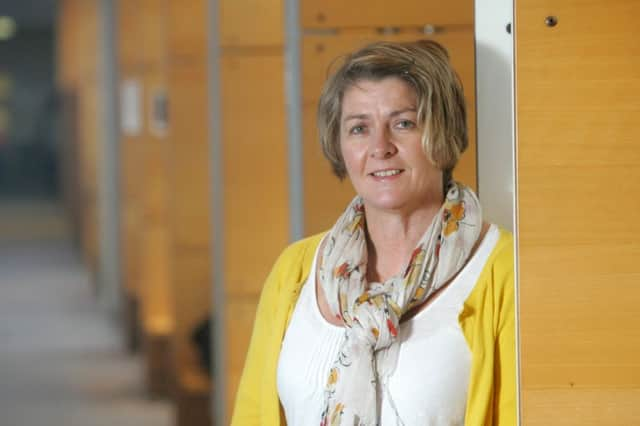Obituary: Professor Ailsa McKay, professor of economics


Professor Ailsa McKay was a founding member of both the Scottish Women’s Budget Group and the European Gender Budget Network. She was also a member of the International Association for Feminist Economics and a noted academic whose reputation as an imaginative and original thinker was recognised more widely when she was appointed an adviser to the United Nations.
McKay was also an expert witness at the budget scrutiny process of a number of Scottish Parliament committees and advised many other committees at Holyrood.
Advertisement
Hide AdAdvertisement
Hide AdLast November McKay appeared on BBC Radio Scotland’s Stark Talk and demonstrated her serious approach to social affairs alongside her delight in the unusual and an unending sense of fun. In the programme she explained how “being lousy at maths at school had motivated me to try harder and made me develop an interest in economics as a feminist subject”.
Significantly, and appropriately, a scholarship founded in her name by the Glasgow Caledonian University (GCU), which she proudly served and loved, will inspire future generations of scholars to debate and campaign for social change.
McKay was a much admired member of the academic community in Scotland and her feisty nature and ability to assemble arguments in support of her many causes will be much missed at Holyrood and elsewhere. Professor McKay made an indelible mark on the Scottish political and social landscape.
Principal and Vice-Chancellor of GCU, Professor Pamela Gillies, said: “In her far too early death, Scotland has lost an important force for good, the university has lost a greatly valued, committed and intellectually vibrant colleague, and I have lost a dear friend.”
Ailsa McKay gained her PhD from Nottingham University and a first class BA (Hons) from Stirling University.
Her principal teaching and research interests were in the economics of the welfare state, the reform of current social security measures and the economics of gender inequalities. But her concerns for Scotland were wider than pure economics. McKay was instrumental, for example, in providing the economic case for underpinning the Scottish Government’s proposals for free, universal childcare.
It was her ability to seek change and accept new methods that made McKay so important. Students were made to rethink accepted practices and explore new avenues of thought and thinking. Her devotion to increasing both women’s welfare and the lives of ordinary people was central to her beliefs.
Ann Henderson, secretary to the STUC Women’s Committee, said: “International Women’s Day [last Saturday] gave us the chance to celebrate Ailsa’s passion for change. Only last weekend she had spent time at an STUC Women’s School generously sharing her experience and expertise in order that other women would be empowered to pursue equality in their workplaces and communities.”
Advertisement
Hide AdAdvertisement
Hide AdIt was McKay’s overriding desire to bring together the world of academia and the women’s movement. She felt her academic work had to lead to a change for women, and only a week ago gave an inspirational address to the Women’s Weekend School.
McKay was an imposing figure, whether in the lecture hall, the television studio or debating issues with colleagues. With her half-moon spectacles, handsome appearance and quick mind, she was usually a central figure.
She spoke in a quiet and deliberate manner, was always bright, courteous and articulate but preserved a relaxed sense of reality in her deliberations. That did not mean her arguments were relaxed – they were always to the point and apposite. Her ability to rouse audiences was witnessed last year at the Marriott Hotel in Glasgow when she gave an inspirational speech at the Radical Independence Conference.
Her speeches were hard hitting but never doctrinaire. She had the ability to capture the spirit of an assembly in a telling or poignant phrase. She said in ringing tones last year: “Equality in work is not just an issue of social justice. But also of economic efficiency; equality boosts economies, inequality acts as a drag.”
Recently McKay contributed to a number of research projects examining the causes and consequences of gender-based occupational segregation with particular reference to Modern Apprentices in Scotland.
One of her last executive actions was to sign off her joint authorship of the Jimmy Reid Foundation Common Weal report on welfare. Colleagues consider the report will make a substantial contribution to the welfare debate in Scotland, and its aims – to create a more caring and compassionate society in which women’s issues are highlighted – reflect McKay’s own desires. It will mark a fitting memorial for this most decisive and resolute woman.
McKay published widely on economic and social subjects. She had been nominated for a Saltire Society Outstanding Women of the Year 2014 Award.
Professor McKay, who had been diagnosed with cancer a year ago, is survived by her partner Jim, and her children Annie and Rory.